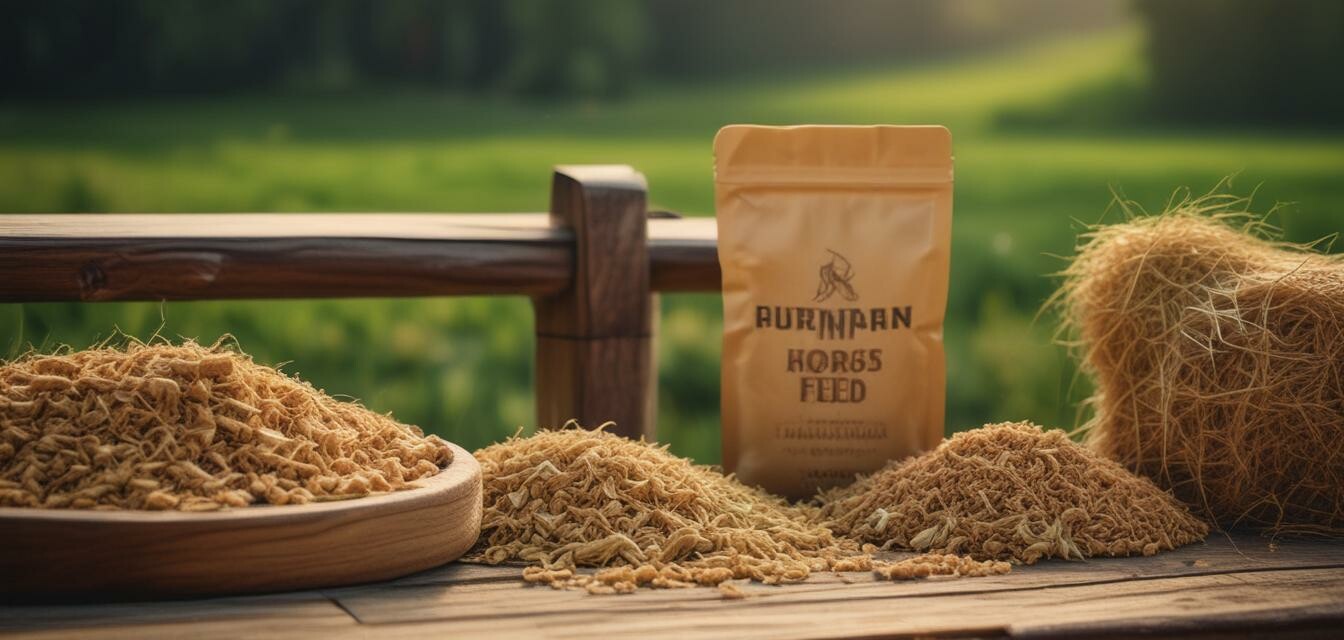
Creating a Balanced Horse Diet: Essential Nutrients
Key Takeaways
- A balanced horse diet is essential for optimal health and performance.
- Key nutrients include carbohydrates, proteins, fats, vitamins, and minerals.
- Understanding forage quality and feed types helps in formulating a proper diet.
- Regular veterinary checks and adjustments according to the horse’s needs are crucial.
- Hydration should not be overlooked as it plays a vital role in digestion and overall health.
Providing a balanced diet for your horse is fundamental to its health and ability to perform optimally. Understanding the essential nutrients involved in a horse's diet can significantly enhance their overall well-being. In this article, we will explore the main nutritional components that contribute to creating a balanced horse diet.
The importance of a balanced horse diet
A balanced diet ensures that your horse receives the right amount of energy, nutrients, and hydration it requires every day. This balance not only influences physical performance but also promotes long-term health stability.
Essential nutrients for horses
In order to formulate a balanced diet, it's vital to understand the key nutrients required:
| Nutrient | Function | Sources |
|---|---|---|
| Carbohydrates | Primary energy source | Grains, hay, and grass |
| Proteins | Muscle growth and repair | Legumes, soybean meal, and alfalfa |
| Fats | Energy source, skin health | Vegetable oils, flaxseed |
| Vitamins | Support biochemical processes | Green forage, fortified feeds |
| Minerals | Bone health and enzyme functions | Salt, minerals, and specific feeds |
Understanding forage and feed types
Forages like grass and hay are fundamental in a horse's diet. They help in digestion and contribute to the intake of necessary nutrients. Additionally, the quality of these forages can vary, affecting the overall nutrition of the horse. Below are some common types of forage:
- Grass hay (timothy, orchard grass)
- Legume hay (alfalfa, clover)
- Pasture grazing
Choosing the right supplements
Sometimes horses may require supplements to meet specific nutritional needs. Here's a guide to choosing the right ones:
| Supplements | Purpose |
|---|---|
| Probiotics | Improve gut health |
| Electrolytes | Replace minerals lost through sweat |
| Joint support | Promote joint health for active horses |
Monitoring and adjusting diets
It's vital to monitor your horse's condition regularly and adjust their diet accordingly. Factors like age, workload, and health status can all require dietary changes.
Tips for beginners
- Introduce new feeds gradually to avoid digestive issues.
- Always provide access to fresh, clean water.
- Consult with a veterinarian to tailor diet plans to specific needs.
- Observe your horse's body condition and adjust feed quantity as necessary.
- Keep records of feed and health to track any changes over time.
Common feeding mistakes to avoid
Ensuring your horse gets the proper nutrition involves avoiding some common feeding mistakes:
- Overfeeding or underfeeding hay and grains
- Neglecting hydration needs
- Ignoring body condition and behavior changes
- Failing to balance different nutrients
Final thoughts
Creating a balanced diet for your horse is essential for their health and performance. Understanding the requirement for essential nutrients and monitoring their diet is key to achieving optimal results. With the right knowledge and resources, you can ensure your horse has a fulfilling, healthy life.
Pros
- Improved health and performance.
- Reduced risk of nutritional deficiencies.
- Better digestion.
- Enhanced coat condition.
Cons
- Cost of specialized feeds and supplements.
- Time investment in meal prep and monitoring.
- Need for continuous education on nutrition.
For more tips on horse nutrition and care, visit our Rider Tips and Advice section. You can also explore related articles in our Buying Guides to get deeper insights into choosing the best product for your horse’s needs.
